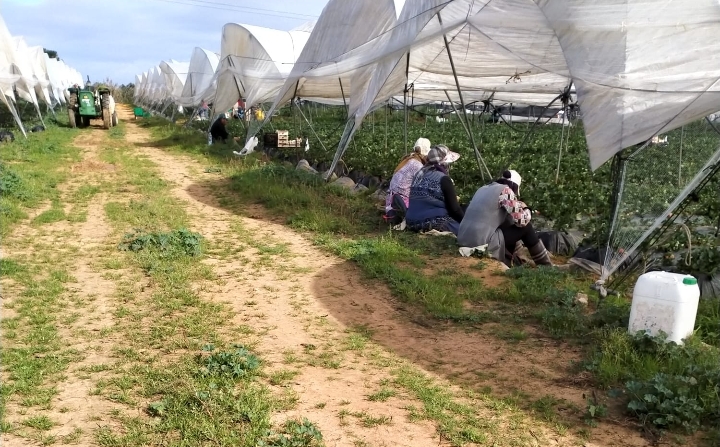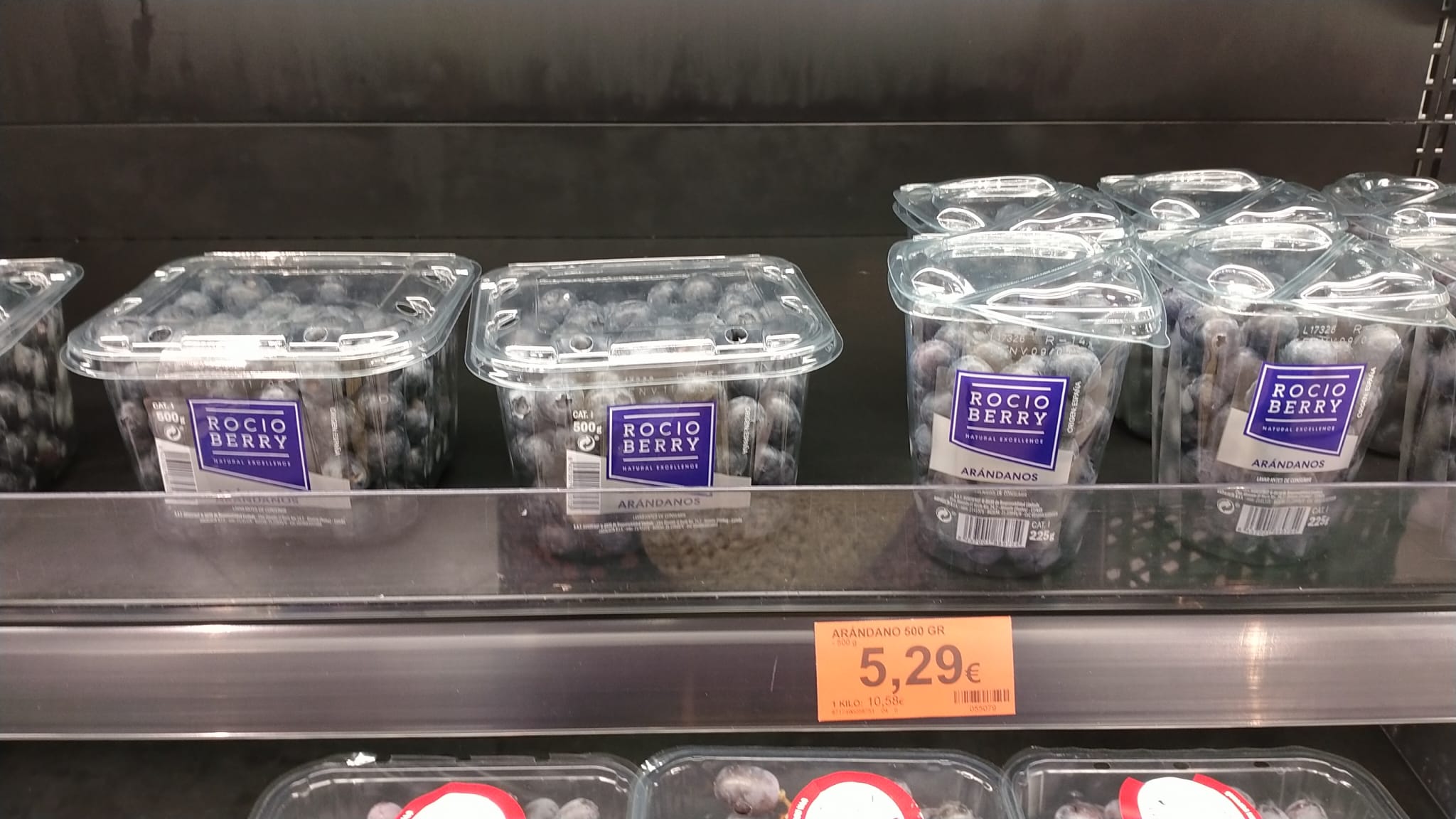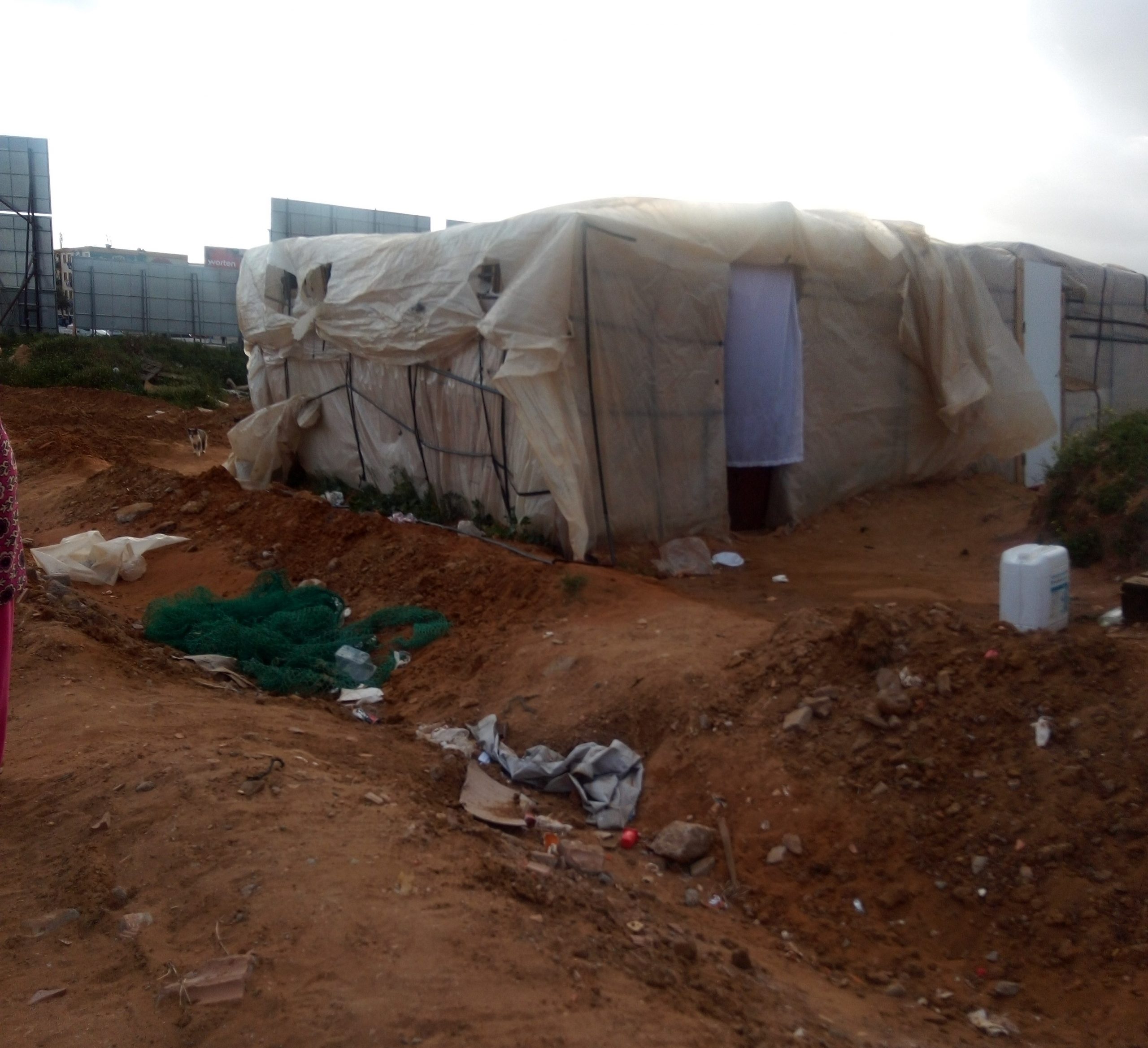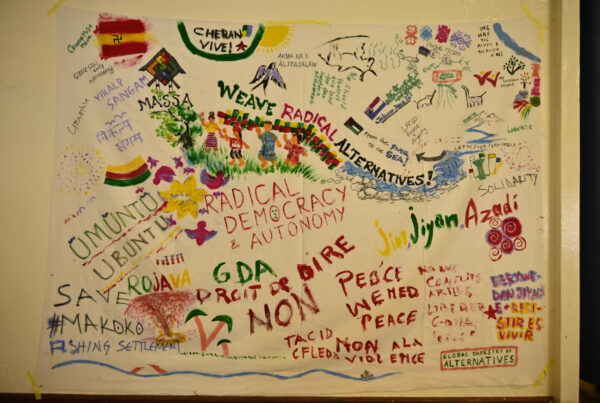The voices of farmworkers in the production of raspberriess in the province of Huelva (Andalusia), make visible the social costs of the treatment of agriculture as a global commercial product and workers as exploitable bodies.
With this essay’s title, we make a nod to the work of anthropologist Seth Holmes, Fruta fresca, cuerpos marchitos (2013), where the author narrates the obstacles that Mexican Indians go through to work in raspberries in the USA, and how the migration process takes place, the labor exploitation they face, as well as the consequences that working conditions have on health. We take Holmes’ ethnography as an example to discuss the social costs of food today, focusing on raspberry production in the “Covid-19 era”, but in another geographical area: the province of Huelva in southern Europe, in Andalusia.
In December 2020, a year marked by the emergence of a global pandemic that resulted in hundreds of thousands of deaths and the confinement of a third of the world’s population, the newspaper ABC de Sevilla in its Agrónoma section published an article under the title: “Challenges for berries from Huelva: Brexit and Covid-19 cloud a year marked by increased sales to the UK”. The article opened with the following sentence: “Exports of raspberries to the British market increased by 28.7%, blueberries by 20.5% and strawberries by 13.5%”. A simple sentence that sums up the priority of the agri- food industry today: sales.
Let us recall that, until the establishment of the WTO in 1995, food was a matter of national and local sovereignty, not of global trade. However, by placing food at the service of globalization, subsistence needs are being equated with markets governing economic growth (fossil fuels, minerals) or luxury goods. In other words, in global markets, food is traded on the stock exchange, with values such as gold or silver.
Therefore, it is presented as a commodity and not as an essential good for sustaining life.
The offshoring of labor that is inserted in agri-food production today, put in check different agricultures and economies such as the European one, where we find circular migrations that safeguard the raspberries in Spain, asparagus in Germany or tomatoes in Italy. In parallel, during the first confinement, demands for fresh fruit and healthy foods increased. The World Health Organization (WHO) launched the slogan #HealthyAtHome: Healthy Diet, which stated the following:
“Healthy eating is very important during the Covid-19 pandemic. What we eat and drink can affect our body’s ability to prevent, fight and recover from infections. While no single food or dietary supplement can prevent or cure Covid-19, a healthy diet is important for a well-functioning immune system.”

Workers eating in the greenhouse. Cartaya, Huelva. Source: Author
The Food and Agriculture Organization of the United Nations (FAO), developed a list of 7 healthy eating tips for dealing with the Covid-19 crisis, the first being:
“Strengthen your immune system through food: Increase your intake of fruits and vegetables, with at least five servings a day. They contain a lot of vitamin A and C, as well as antioxidants, which will help you fight infections. Eat legumes at least three times a week: they keep for a long time, are economical and will help you stay healthy, because they are high in protein and iron.”
Institutionally the food debate focused on the product and health benefits although there was a tendency to call the seasonal workers heroes, as well as a shock at the revelation of the living and working conditions. Producers focused marketing on the benefits of the fruits for Covid-19, as recounted by a producer from Rociana, interviewed in October 2020:
“We are going to educate our customers and the population about why it not only has higher quality, but the benefits you get and more in the times of Covid that there is greater concern for the welfare, for health and for all these types of products that are super healthy. I think it is the healthiest thing there is right now and it would be a pity that since it is a local thing and we have it, we do not take advantage of it.” (“Rafa “*, in charge of cooperative and berry production).
The strategy of this cooperative can be extrapolated to the way other cooperatives in the sector operate, as well as to the strategies implemented in the sector’s fields in general. The question arises as to how to increase sales despite the problems.
How is it possible to produce health?
Fresh fruit and vegetables played a central role during the most complex period of the pandemic, so the people in charge of the basic tasks of getting them to our homes were for the first time called “essential”. Fearing shortages, Ursula Von der Leyden, President of the European Commission, urged workers to cross borders. Charter flights were arranged for thousands of Romanian workers to travel to Germany. In Portugal the measures focused on migrant population with residence permits in process and in Italy there was a regularization of day laborers and six-month renewable work permits were granted. Spain applied Royal Decree Law 13/2020, which included special mobility and employment clauses, aiming “To favor the temporary hiring of workers in the agricultural sector through the establishment of extraordinary measures of employment flexibility, of a social and labor nature, necessary to ensure the maintenance of agricultural activity, (…) of temporary application until June 30, 2020.”
There was no regularization of people already in the field, but work permits were extended until the end of the confinement. The first wave coincided with the raspberry harvest (strawberry, blueberry, raspberry and blackberry), which is grown in the province of Huelva, the world’s leading exporter of strawberries. Romanian and Bulgarian people work here, as well as people from Senegal and Mali, women hired in Morocco, and local workers. This population is often inserted in circular migrations in different campaigns in different territories of Andalusia, as well as in other autonomous communities and between bordering countries, such as Portugal and Spain.
Mobility restrictions destabilized this sector and others, which saw their production at risk. Although there were casualties of workers and there was no regularization of the situation of those who needed it and were in the field, consumers continued to eat fresh fruit, because the sector has not only continued its production, but has expanded it. This is the opinion of a farmer interviewed in October 2020 in the municipality of Lepe, one of the areas with the highest production:
“This year the blueberry has been worth more and has sold a lot. And of course, there has been a lack of people, but production has been maintained by putting in more hours. We start at half past four to pick strawberries, at half past eleven we finish and we pick blueberries until half past seven (at night), but don’t force them because they have to go to bed early and I do that to make capital because anything that involves picking strawberries after eleven o’clock is no longer useful and we start at that time and that burns, eh? We go with flashlights on our heads. 110 workers in campaign and none of them from the town. I’m lying, the one who drives the truck and me. The rest are all foreigners. I have Bulgarian women who have been with me for twelve years.” (“Jesús “*, producer from Lepe)
The producer understands his harvest as capital, as an economic asset with a lucrative purpose. For this reason, an extension of the working day has been the general trend used so that the homes were full of healthy food. A generalized affirmation. “David”, another farmer from Almonte, when asked how production levels have been maintained, replies: “By putting in more hours, the same people have been working longer hours”.

Blueberries in supermarkets in 2020 campaign. Source: AuthorBlueberries in supermarkets in the 2020 campaign. Source: Author
Continuing with the questions, it is worth asking who has “put in the most hours” and how they have experienced this. The following are excerpts from interviews with collectors.
What is the price of healthy eating?
Jason Moore, in his theory of world ecology, states that for there to be an accumulation of capital it is necessary to control the four cheap natures: food, labor, raw materials and energy. Workers would form the cheap nature of labor because, by receiving low wages, they generate a surplus value to the sector that lowers production costs. In addition, the savings made on protective materials during the first wave and the lengthening of working hours facilitated this accumulation by producing food at low cost. A blueberry employee notes the following on safety measures: “No one was tested, nothing, never. The mask was given to me ten days before I came and I started in February. Covid-19 was in March and I came in May” (“Lucía “*, blueberry worker). Likewise “Maite”, a cooperative worker recalls how
“They measured our temperature when we entered, but the temperature gauges were broken, so it was 32, 34, or even 37 (…) So when an outbreak occurred, we were scared shitless.” (“Maite “*, worker in a raspberries cooperative).
The lack of protection at work has not been the only problem, as we find essential workers who have been unprotected in their “homes”. We are talking about the indispensable reserve army, made up of migrants who every year attend to temporary tasks. For them, the motto #StayHome did not apply, because they did not have a home. They live in substandard cardboard, wood and plastic shacks scattered among dozens of shantytowns in Huelva. Without electricity or water, these people have not seen their circumstances improved, nor have they been relocated to safe housing.
Seydou (real name) was part of this reserve army of “undocumented migrants”. Originally from Senegal, he arrived in Huelva and worked for several years without documentation until he was able to regularize his situation. Today he is a public activist who denounces among other causes, how people have worked in raspberry production during the first wave Covid-19:
“I have experienced it terribly, like everyone else. There is no protection measure, nothing at all, and I do not understand it. People are not afraid because we are immigrants and the moment the State decreed the State of Alarm, it said it was not going to leave anyone behind. Perfect, as an activist I was very calm, but I have not seen any change in our way of living. The settlements are the same, there is no sanitation, no electricity, no water, nothing has changed and that is what I don’t understand. If our life is worth something at least a little bit, during the pandemic the hotels, sports centers, schools, everything has showers and hot water, why they do not enable it temporarily [as housing] for the pandemic? It means that there is institutional racism here, that there is total racism, if it were Spaniards who are living in this situation during the pandemic, they would have already looked for solutions”. (Seydou, raspberries worker and activist)

Shantytown housing in Lepe, Huelva during 2020 campaign . Source: AuthorShantytown housing in Lepe, Huelva during 2020 campaign . Source: Author
The workers’ stories are essential to bring us a little closer to the reality of our diet. For the promotion of a healthy diet, we find a setback in the quality of life of workers. Not even a global pandemic has been able to structurally improve jobs in agriculture, even though the precarious conditions on which our food is based have become visible. It would have been an opportunity to demonstrate that we have really learned the value of caring for the environment from a broad eco-social perspective, promoting labor policies that regulate wages and modes of production for the benefit of essential workers. However, as the protagonists themselves tell us, they have not seen any change or improvement in this regard. We can conclude that the price of eating healthy food is becoming cheaper economically, and higher socially.
Soledad Castillero Quesada is a Social and Cultural Anthropologist, researcher at the Migration Institute of the University of Granada and FPU pre-doctoral fellow in the Department of Social Anthropology of the same university. Her lines of research revolve around the impacts of intensive agriculture, food globalization, gender and migration studies, for which she carries out fieldwork in the raspberries production sector.
* All the names of the interviewees have been replaced with pseudonyms to preserve their identity, except in the case of Seydou, who, being a public activist, wishes his real name to appear.
** The editing of this text by Undisciplined Environments was supported by Lucía Argüelles, researcher at the Department of Economics and Business and at the Laboratory of Urban Transformation and Global Change (TURBA) of the Universitat Obert de Catalunya (UOC).
*** Profile photo/top: Freshly picked strawberries at Cartaya farm. Source: Author






